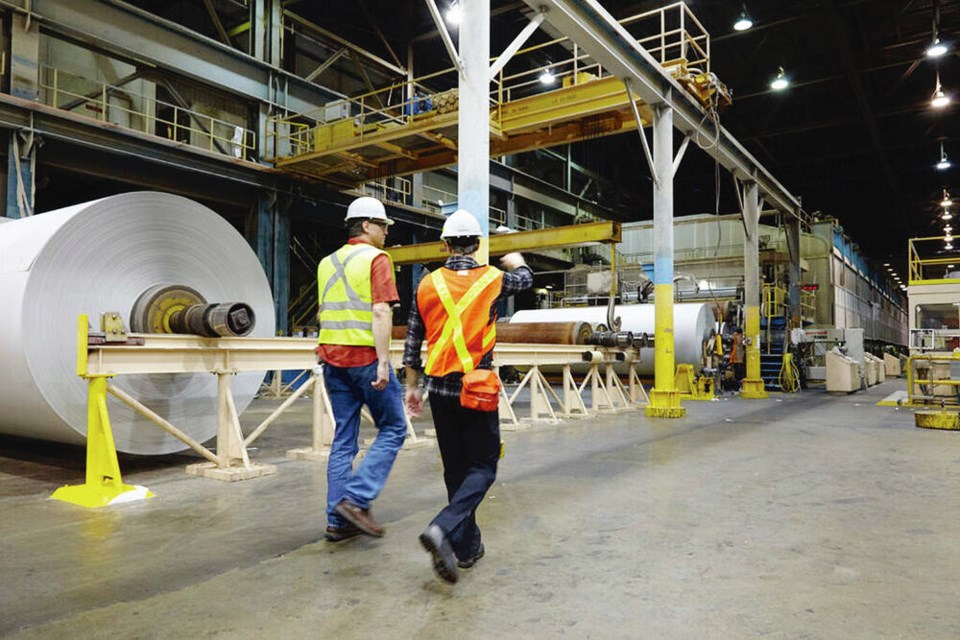Paper Excellence Canada has announced that its Catalyst Crofton pulp-and-paper mill is resuming kraft pulp operations and bringing about 300 people back to work, but the stoppage of paper operations will be extended at least until the end of October.
“In spite of challenges posed by exceptionally low pulp-and-paper prices driven by global market fluctuations, we are pleased to announce that we are resuming pulp production and reinstating a portion of our workforce at our Crofton mill,” said Krista Cuddy, the mill’s interim director of operations and integration.
“While this is a positive development, we will continue to assess the ongoing viability of maintaining kraft pulp operations at Crofton to ensure it is cost-effective to operate and consistent with our overall business strategies.”
Workers will return in the first week of October and the pulp operations will be up and running by the middle of the month.
Richmond-based Paper Excellence Canada said it is continuing to work with the mill’s unions, the Public and Private Workers of Canada and Unifor, “to support our valued workforce as we restart pulp production and mitigate the impact of the ongoing paper-production curtailment.”
All of the workers returning are from the PPWC, which has 400 members of Local 2 on the mill’s staff. None of the 60 Unifor Local 1132 members, who work as paper makers, have been called back.
North Cowichan Mayor Rob Douglas said he was relieved to hear the news about workers returning to the mill, which his grandfather helped build and where his father worked as a pipefitter — and where he worked during summers when he was at university.
He said about 160 workers haven’t been called back.
“It’s certainly sad, but we are very happy to hear about the more than 300 workers that are going to be back on the job.”
Douglas said that the mill is the municipality’s biggest single taxpayer at $4.5 million a year “and one of our most significant employers.”
The mill creates a big economic spin-off with workers spending money and other companies being brought in for various tasks, he said.
Workers had hoped to be back on the job at the beginning of September, but the startup was delayed, with the company citing ongoing market conditions. It was the third 30-day delay in three months.
The first temporary curtailment of mill activities was announced in May for June 30 to July 31, followed by a second for the month of August.
Unifor national representative Ben Williams said it is “extremely disappointing” for members to still be waiting to work.
“These curtailments have been extended at the end of each month, and we’re only getting the notification within five to six days before the end of the month.”
He said Unifor is concerned that if the situation doesn’t get settled soon, valuable staff with decades of experience and training might leave to seek other employment and would be hard to replace.
“That could jeopardize the mill opening in the future.”
The “fanfare” of $70 million in funding announced in January from the company, the province and the federal government to upgrade paper operations and help the mill get going hasn’t amounted to much happening, Williams said.
“Our members live and work in the Cowichan Valley and want to continue to live and work there, but they need some stability in their employment.”
Paper Excellence Canada has an overall work force of over 2,100 and an annual production capacity of about 2.5 million tonnes.



